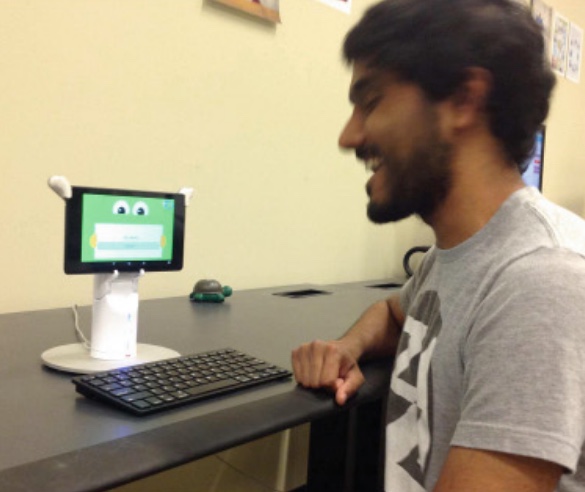Automatic Adaptation of Online Language Lessons for Robot Tutoring

L. Perlmutter, A. Fiannaca, E. Kernfeld, S. Anand, L. Arnold, and M. Cakmak, “Automatic Adaptation of Online Language Lessons for Robot Tutoring,” 2016.
Abstract
Teaching with robots is a developing field, wherein one major challenge is creating lesson plans to be taught by a robot. We introduce a novel strategy for generating lesson material, in which we draw upon an existing corpus of electronic lesson material and develop a mapping from the original material to the robot lesson, thereby greatly reducing the time and effort required to create robot lessons. We present a system, KubiLingo, in which we implement content mapping for language lessons. With permission, we use Duolingo as the source of our content. In a study with 24 users, we demonstrate that user performance improves by a statistically similar amount with a robot lesson as with Duolingo lesson. We find that KubiLingo is more distracting and less likeable than Duolingo, indicating the need for improvements to the robot’s design.
BibTeX Entry
@inproceedings{perlmutter2016icsr,
title = {Automatic Adaptation of Online Language Lessons for Robot Tutoring},
author = {Perlmutter, Leah and Fiannaca, Alexander and Kernfeld, Eric and Anand, Sahil and Arnold, Lindsey and Cakmak, Maya},
year = {2016},
booktitle = {International Conference on Social Robotics (ICSR)},
type = {conference}
}